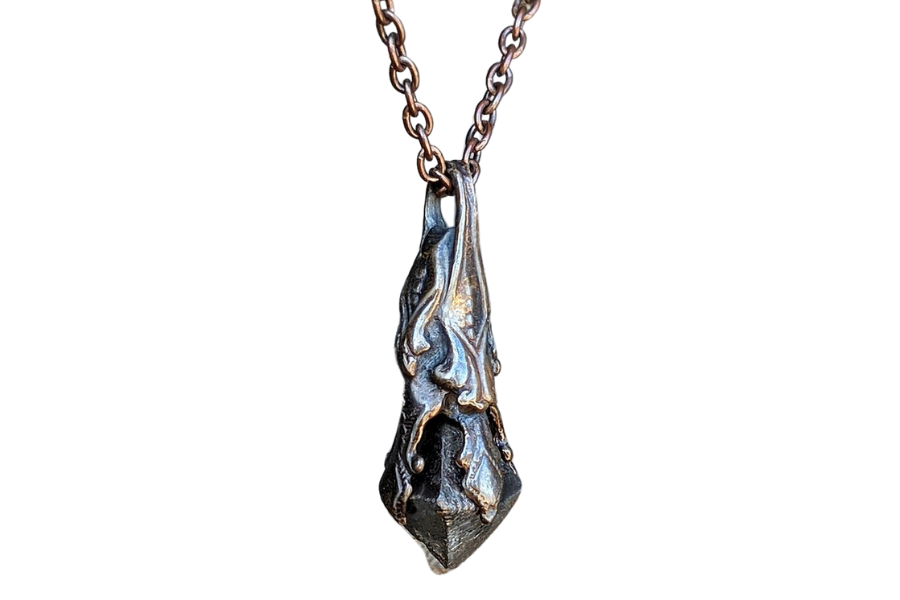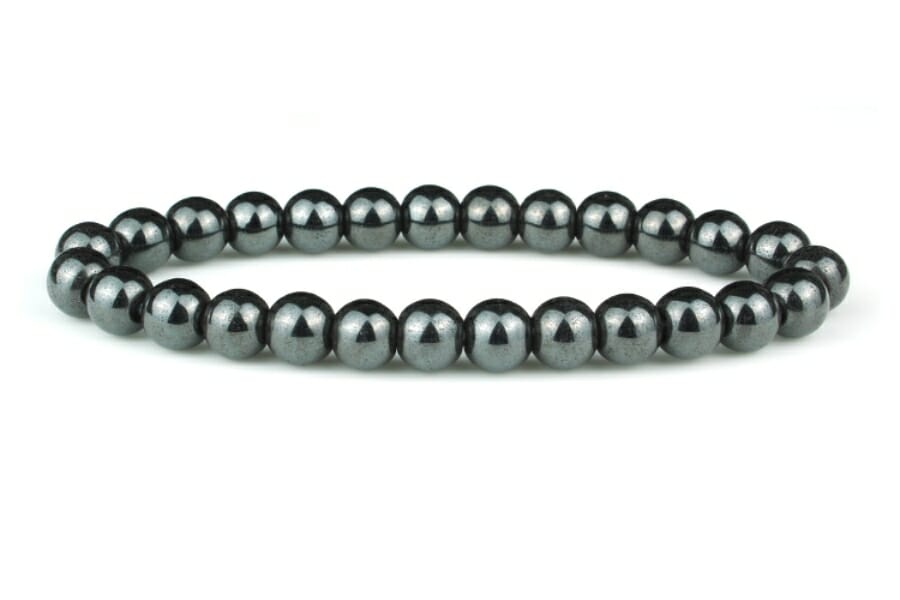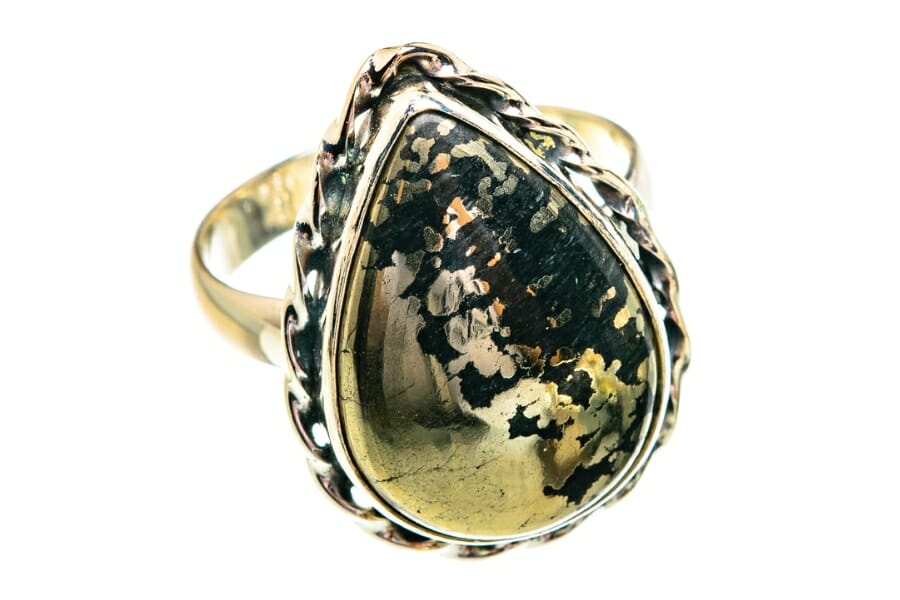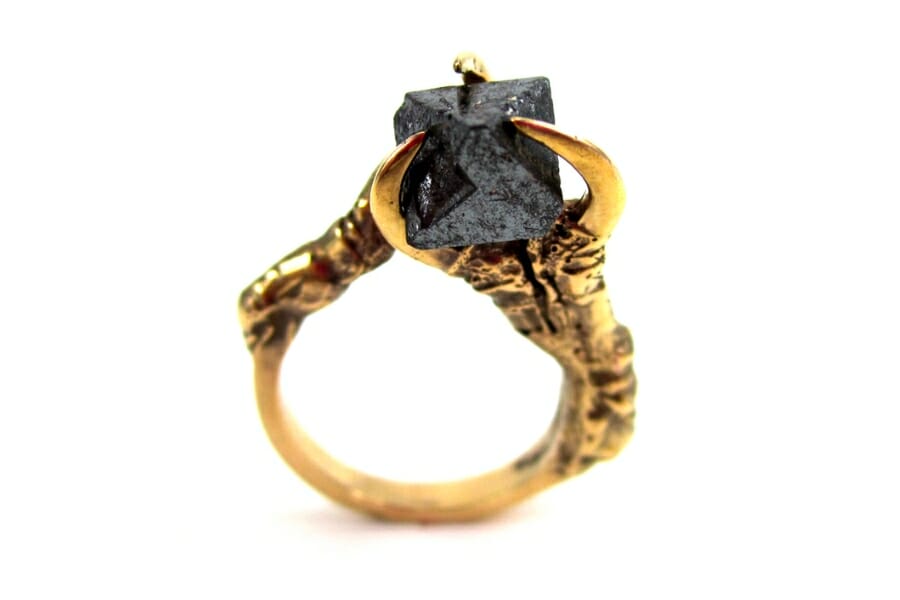Known for its captivating properties and diverse applications, Magnetite has garnered immense appreciation among geologists, scientists, and industrial sectors. But just how much is it worth?
Magnetite is a unique iron oxide that’s often referred to as Lodestone. What sets it apart from other minerals is its magnetism, which is derived from its iron content. In the realm of geology, Magnetite serves as a crucial indicator for identifying ore deposits. It aids in the search for valuable resources like iron, gold, and copper.
The value of this mineral stems from its multiple uses across various fields. In this article, we’ll dive deeper into the fascinating world of this natural treasure. Prepare to be amazed by Magnetite’s intrinsic value and the wonders it brings to our lives!
What Magnetite Is

Magnetite is a remarkable mineral that’s composed of three parts iron (Fe) and four parts oxygen (O). It’s known for its striking black color, metallic luster, and most notably, its magnetic properties.
Magnetite has the magnetic ability to attract and repel objects due to its high iron content. When a magnet is brought near this mineral, it exhibits a fascinating magnetic force.
Considering its diverse uses and contributions to various industries, Magnetite has become an invaluable mineral that continues to play a crucial role in our daily lives and in our entire society.
Why Magnetite Is So Expensive

Magnetite holds a special place in the hearts of geologists, scientists, and industries. Its unique qualities and wide range of applications make it a true treasure, highly valued and sought after.
One of the key reasons for Magnetite’s value lies in its magnetic nature. Imagine having a rock that can make things move without even touching them! This magnetic charm makes it stand out from the crowd and earns it the name Lodestone.
Geologists have a special affinity for Magnetite because it acts as a reliable guide in their quest for hidden treasures. This mineral has a knack for cozying up to valuable minerals like iron, gold, and copper. When geologists stumble upon Magnetite, they know they might be onto something big.
Industries also simply can’t resist the allure of Magnetite. Its high iron content makes it a superstar in the realm of steel production. Adding this mineral to the mix enhances the strength and durability of steel, turning it into an astounding material that can build skyscrapers, bridges, and mighty machines.
But Magnetite’s value doesn’t stop there. It also plays a vital role in environmental technology. Water purification systems harness its magnetic properties to attract and remove impurities, ensuring cleaner and safer drinking water for communities.
Simply put, Magnetite is no ordinary rock. Its significance and true value extends beyond monetary worth.
How To Determine The Value Of Magnetite

Magnetite’s value is predominantly based on its functional properties and industrial uses, rather than the usual qualities that affect the price of other rocks and minerals. The following are the factors that greatly influence this mineral’s value:
Quality
Higher-quality Magnetite typically commands a higher price due to its purity, consistency, and desirable characteristics. Factors such as the level of impurities, crystal structure, and overall appearance influence the perceived quality of this mineral.
Quantity
Larger quantities of Magnetite often lead to economies of scale, where the price per unit decreases as the volume increases. Conversely, rarer or limited quantities of this mineral may drive up the price due to higher demand and limited supply.
Extraction and Processing
The costs associated with mining, extracting, and processing Magnetite can affect its price. Factors such as labor, equipment, energy, and environmental regulations all contribute to the overall cost of production. These costs can vary depending on the location and complexity of the mining operations.
Market Demand
The demand for Magnetite in various industries and sectors can impact its price. If there’s a high demand for it in steel production, for example, the price may increase due to increased competition and market dynamics.
Similarly, if Magnetite is in demand for its use in water purification systems or other applications, it can influence its market price.
Market Conditions
Like any commodity, Magnetite’s price can be influenced by broader market conditions, including economic factors, supply and demand dynamics, and geopolitical factors.
Changes in global steel production, fluctuations in resource availability, and shifts in international trade can all contribute to fluctuations in this mineral’s prices.
Magnetite Price
Magnetite’s price in the current market falls under the range of $0.05 to $1 per carat. When you think about its plethora of uses compared to its price, you’ll realize right away how affordable it can be!
Let’s have a bit of fun and see just how much this mineral is worth if we measure it using different units:
Magnetite pricing by unit of measurement
| Measurement | Price |
| A carat of Magnetite | $0.05to $1 |
| A gram of Magnetite | $0.25 to $5 |
| An ounce of Magnetite | $7 to $142 |
| A kilogram of Magnetite | $250 to $5,000 |
| A pound of Magnetite | $113 to $2,268 |
| A ton of Magnetite | $226,796 to $4,535,925 |
How To Get An Appraisal On Your Magnetite

There are several ways to get an appraisal on a piece of Magnetite, such as:
Consult with a professional mineral appraiser or geologist who specializes in evaluating and valuing minerals. These experts have extensive knowledge of various mineral specimens and can provide an accurate assessment of your Magnetite.
Reach out to mineral dealers or collectors who have expertise in Magnetite. These individuals have experience in buying, selling, and appraising minerals and can offer insights into the current market value.
Online mineral marketplaces and forums can also be helpful in obtaining appraisals. You can post clear photographs and detailed information about your Magnetite specimen to seek input from the community.
Lastly, if you have a particularly valuable or rare piece of Magnetite, it might be worth considering contacting an auction house specializing in minerals. These auction houses have experts who can evaluate and appraise your specimen and potentially help you sell it at a fair price through their auction platform.
Regardless of the approach you choose, it’s crucial to gather information from multiple sources and consider the qualifications and experience of the appraiser.


